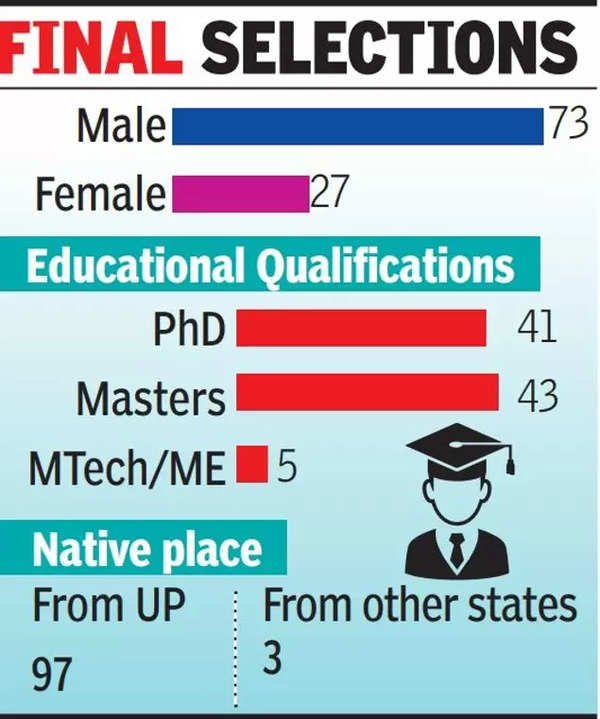The 100 fellows, comprising 41 PhDs, 43 masters’ degree holders and three MTechs, will be posted in the coming month to work on the government’s aspirational blocks programme.
Alok Kumar, secretary, planning department, said that the two-week training programme, to be inaugurated by chief secretary DS Mishra, will include training on three modules. “About 50% of the training time will go into the main subject matter, which is the aspirational blocks programme. The fellows will be told about the programme, what they will be required to do and an in-depth coaching on various aspects of development work. For this, we are trying to get heads of departments like basic education and panchayati raj to speak to the trainees,” he said.

The second part of the programme will deal with management and use of technique while the third component, which will be about 25% of the training, will be motivational. For this, Kumar said, the department is arranging for retired bureaucrats, IIM experts etc to conduct these sessions. “We will also have sessions on Zoom for experts who are out of the city. The entire programme will be videographed so that we can monitor the training. One session will also be held by chief minister Yogi Adityanath but the details of that are yet to be finalised. During the two weeks, we will also give out the postings to the fellows,” Kumar said.
The training will be conducted at the State Institute of Rural Development campus in Bakshi ka Talab where the fellows will also be put up in the hostel.
The programme, being organised for the first time, saw more than 26,000 persons apply for 100 posts. The selected fellows will be placed under district magistrates and block development officers. They will work on contract for a year at a stipend of Rs 30,000 per month and will get an additional Rs 10,000 per month for travel and a one-time payment of Rs 15,000 for a tablet.
They will be employed full time and their work will include review of implementation of projects, compilation of primary data, handling problems and giving suggestions to make projects and schemes people friendly. They will be required to submit monthly progress reports in which they will detail public perception about schemes and the challenges being faced in their implementation.






